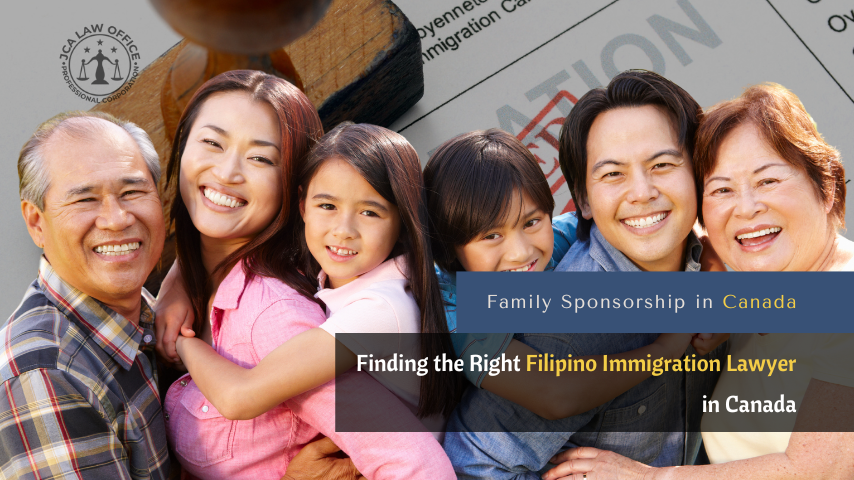Family sponsorship in Canada has been a long-standing tradition, allowing families to reunite and start a new life in the country. For the Filipino community, this program has been an invaluable opportunity for countless individuals and families seeking a better future together. In this article, we will explore the process of family sponsorship in Canada, with a subtle focus on the unique experiences and needs of the Filipino community.
Understanding Family Sponsorship in Canada
Family sponsorship in Canada is a program that enables Canadian citizens and permanent residents to sponsor their eligible family members, such as spouses, partners, children, parents, and grandparents, to come and live in Canada as permanent residents. This program aims to help families reunite and maintain strong family bonds even as they start a new life in a foreign country.
The Filipino Connection
The Filipino community has been one of the largest immigrant groups in Canada, with their numbers consistently growing over the years. Due to the shared values of family-oriented culture and the warm, welcoming nature of Canadians, many Filipinos have chosen Canada as their new home. Family sponsorship in Canada has played a vital role in the growth of the Filipino community, allowing families to stay together and support one another in their pursuit of a better life.
Eligibility Criteria and Application Process
To apply for family sponsorship in Canada, the sponsor must be a Canadian citizen or permanent resident who is at least 18 years old. They should also be financially capable of supporting their sponsored family members upon their arrival in Canada. In addition, the family members to be sponsored must meet certain eligibility criteria, such as being a spouse, common-law partner, conjugal partner, dependent child, parent, or grandparent.
For the Filipino community, the application process can be initiated either online or by mail. It involves submitting the necessary forms, documents, and fees to Immigration, Refugees and Citizenship Canada (IRCC). It is crucial to provide accurate and complete information to avoid delays or the rejection of the application.
Some potential challenges for Filipino applicants may include obtaining documents from the Philippines, such as birth certificates and marriage certificates, or navigating language barriers during the application process. It is advisable to consult with an immigration consultant or lawyer familiar with Filipino culture and the nuances of the family sponsorship process to ensure a smooth application journey.
Settlement and Integration
Once the sponsored family members arrive in Canada, they will be granted permanent residency, allowing them to work, study, and access various social benefits. The Filipino community in Canada has a strong presence, with numerous cultural organizations and support networks in place to assist newcomers with their integration into Canadian society.
Many cities in Canada have thriving Filipino communities, offering familiar foods, cultural events, and social connections. This makes the transition to life in Canada a more comfortable experience for Filipino newcomers, providing a sense of belonging and familiarity amidst the new environment.
Conclusion
Family sponsorship in Canada has been a life-changing opportunity for many Filipino families, enabling them to reunite and start anew in a welcoming and diverse country. By understanding the process and addressing potential challenges, Filipino sponsors and their families can successfully navigate the path to family reunification in Canada, strengthening both their familial bonds and the diverse fabric of Canadian society.

